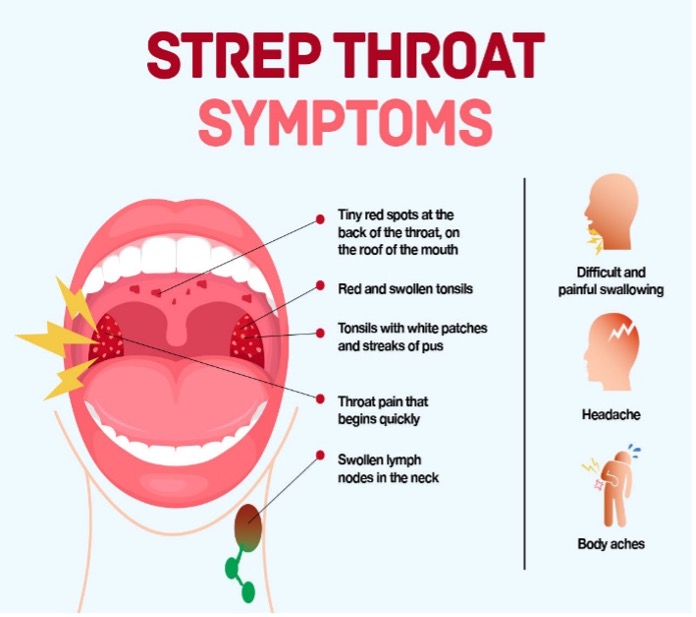Streptococcal pharyngitis, or strep throat, is a bacterial infection causing inflammation in the throat. This infection is spread by coughing and sneezing.
If left untreated, strep throat can lead to complications such as rheumatic fever or kidney inflammation. Less likely to present in children under 2 years old.

Self-Care Guidelines
Measures can be taken to manage signs and symptoms:
- Humidify the air
- Consume easy-to-swallow foods such as apple sauce, soup, or mashed potatoes
- Drink fluids (popsicles are great)
- Rest
- Gargle warm salt water
- Over-the-counter pain relievers such as ibuprofen or acetaminophen can help relieve throat pain and reduce fever
When to Seek Medical Care
Seek medical care you have any of the following symptoms:
- A fever higher than 101°F (38.3°C)
- A sore throat for longer than 48 hours
- A sore throat and a skin rash
- Difficulty breathing
- Difficulty swallowing
Treatments Your Physician May Prescribe
Your health care provider may take a sample of your throat secretions using a throat swab to test for Streptococcus bacteria. However definitive diagnosis is made with a throat culture.
Your health care provider will prescribe oral antibiotics to reduce the symptoms and duration of the infection. Symptoms should improve within 1-2 days after taking antibiotics. If symptoms do not improve after 2 days, contact your health care provider.

